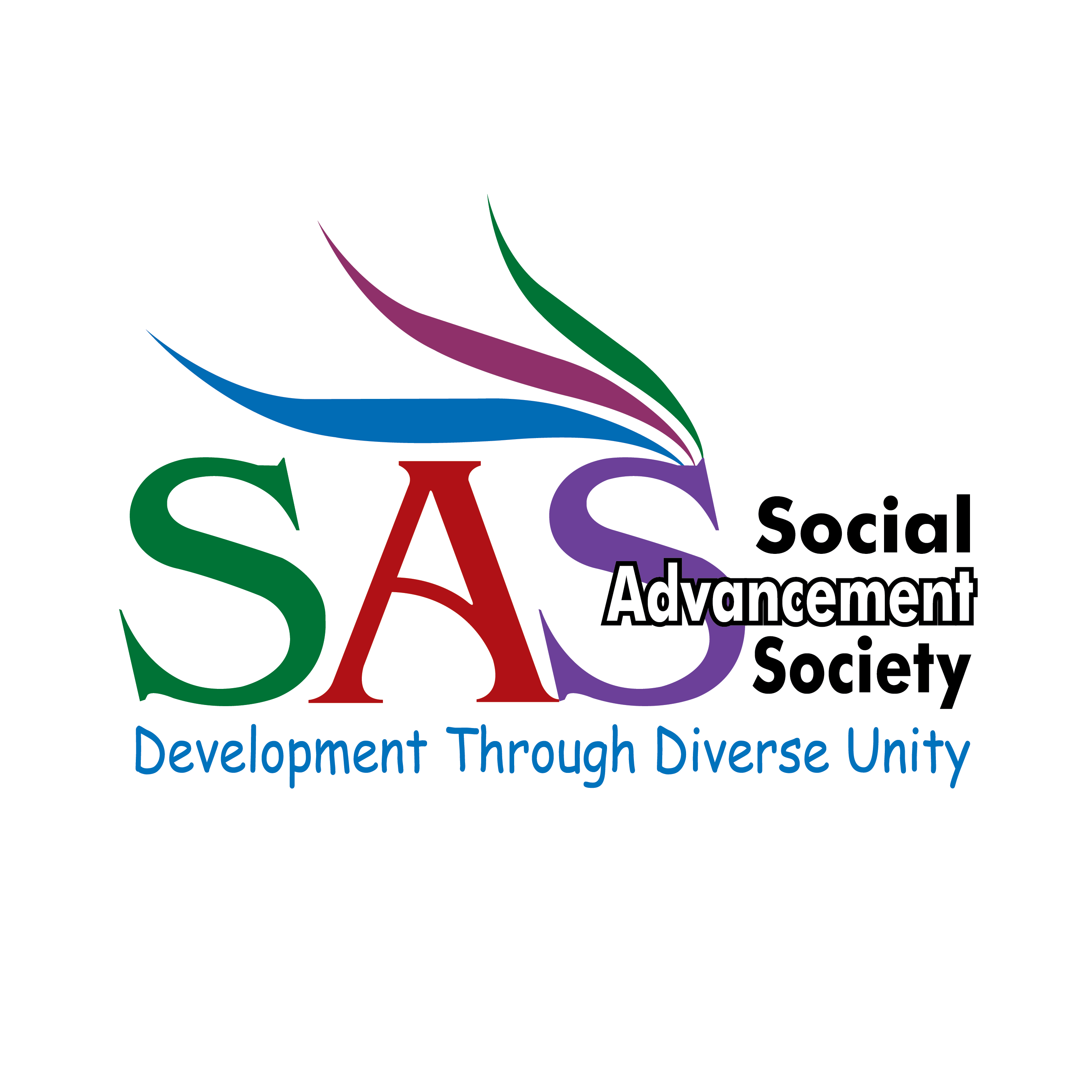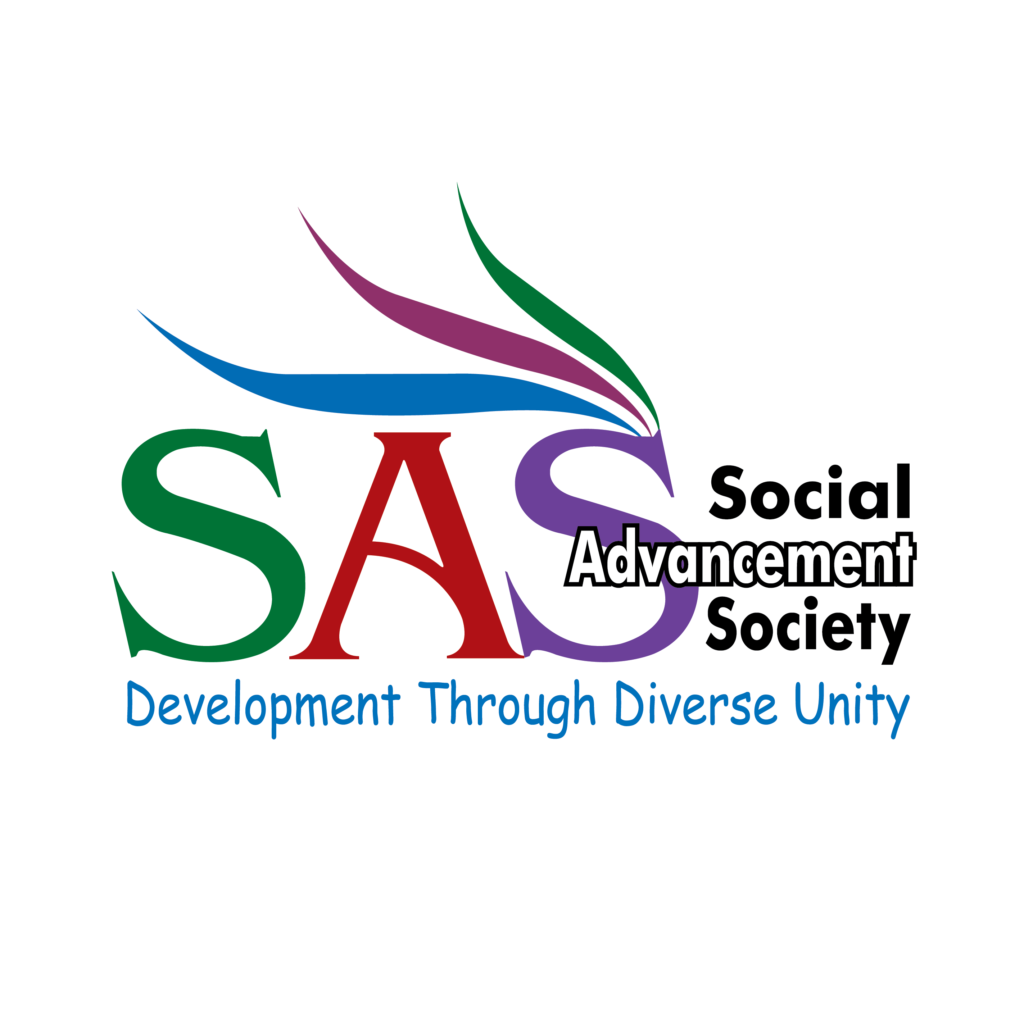SAS (Social Advancement Society), nestled in Bangladesh’s vibrant southern coastal region, has been a catalyst for positive change since 1996. Initially rooted in uplifting marginalized urban slums, fringes, and rural poor communities, SAS has metamorphosed into a rights-based entity, steadfast in upholding human rights, particularly championing Social Inclusion and Empowerment, and Gender Equity for marginalized groups such as women, Indigenous people, Dalits, and the LGBTQIA+ community, alongside orphans, Individuals with special needs, adolescents, youth, and children. At the core of SAS’s ethos lies robust community participation, a linchpin for fashioning a just society devoid of inequality and destitution. Leveraging initiatives like advocacy, research and action research, awareness raising, diversity training, education, livelihood, and grassroots collaboration, SAS catalyzes sustainability and embarks on environmental stewardship endeavors. Moreover, SAS actively engages in Humanitarian Response and Community Support, fortifying marginalized groups and nurturing resilience. SAS endeavors towards a more equitable and sustainable societal tapestry by confronting multifaceted challenges and espousing inclusivity. Furthermore, SAS is pivotal in fortifying and bolstering government development initiatives, diligently seeking to discern lacunae in Social Safety Net Services (SSN) to broaden service horizons and uplift the most vulnerable strata, thus emancipating them from the shackles of poverty. Aligned with the Sustainable Development Goals (SDGs), SAS envisions interweaving a fabric of affirmative change, resilience, and sustainability within the communities it fervently serves. While acknowledging the inherent capacity of individuals to surmount their tribulations, SAS underscores the imperative of opportunity, resources, and civic rights. Employing a diverse approach, SAS embarks on projects across a panoply of sectors, spanning healthcare, poverty alleviation, SRHR, HIV/AIDS, and STIs prevention, disaster management and rehabilitation, support for individuals with disabilities, installation of home solar systems, arsenic mitigation, and environmental preservation, harmonizing its endeavors with national & international development agendas and benchmarks.
Core Organizational Beliefs:
A harmonious nexus between humanity and the environment, navigating the path towards sustainable development
Core Convictions:
- Justice and gender equality
- Combat poverty
- Safeguard the welfare of future generations
- Do No Harm
- Upholding national and international interests and assisting underprivileged communities
- Democratic, transparent, and accountable practice
Core Standards:
- Equality irrespective of race, religion, caste, creed, gender, color, sex, age, and ethnicity
- Prioritize recognizing and supporting women’s diverse experiences.
- Protecting the environment
- Prioritizing outreach to the most vulnerable and marginalized
- Committed to honesty, integrity, sincerity, transparency, and inclusivity
- Prioritizing cost-conscious resource management for impactful initiatives
- Delivering non-negotiable quality services for the communities we serve
- Encouraging creativity and innovation for inventive solutions
- Grounding our work in democracy with a structured and principled approach
Objectives
- Ensure rights and inclusiveness for the poor and disadvantaged.
- Promote community and women’s knowledge systems for sustainable development.
- Facilitate access to support for orphans, adolescents, youth, and children
- Facilitate access to education, healthcare, assistive technologies, and specialized services for individuals with special needs
- Facilitate access to STEM-based education, skills, and knowledge.
- Uphold human rights, transparency, and good governance.
- Facilitate community participation in development initiatives.
- Conserve the environment, ecology, and biodiversity.
- Uphold people’s access and rights to common property, focusing on climate-resilient livelihood.
- Promote knowledge, information, and data-sharing.
- Advocate for government accountability.
- Enhance community resilience with effective disaster response and mitigation.
- Empower women and drive transformative change for marginalized women’s lives.
- Strengthen communities with adaptive strategies for climate change challenges.
Strategic Priorities:
- SAS believes in partnership work with the development partner organizations. Sharing ideas, experiences, and wishes with others helps to enrich organizational strength.
- The organization works as an animator, stimulator, and cooperator in developing and improving the situation of the target people. The organization’s intervention supports and services are guided by the principle “build on what they have and people themselves build their own fortunes.
- The organization works both in urban and rural communities.
- The poor and underprivileged peoples are the target people of the organization.
- The development need comes from the beneficiaries and thus the organization’s programs are the need basis of the beneficiaries.
- Sustainability and self-sufficiency are given priority in the programs.
- People’s participation in the programs is considered very much important.
- Working on public health issues, gender, sexual and reproductive health, HIV and STIs issues, safer sex practice, reduction of social stigma and discrimination, disaster preparedness, and rehabilitations in collaboration and cooperation with GoB and NGOs.
- SAS believes in individual contact, group contact, stakeholder response, linkage and coordination with other stakeholders and gatekeepers, civil societies, etc.
Development Approach
- Community-Centric: Prioritize marginalized groups for inclusive development
- Holistic Development: Comprehensive initiatives for sustainable impact
- Inclusive Practices: Ensuring active participation and representation
- Gender Mainstreaming: Integrating gender perspectives across all programs
- Environmental Sustainability: Embed eco-friendly and resilient practices
- Resource Optimization: Ensure efficient use of resources for maximum impact
- Collaborative Partnerships: Networking for effective programs with national, regional, and global
- Data-Informed: Utilizing information for strategic decision-making
- Transparent Governance: Uphold honesty, integrity, and disciplined operations

